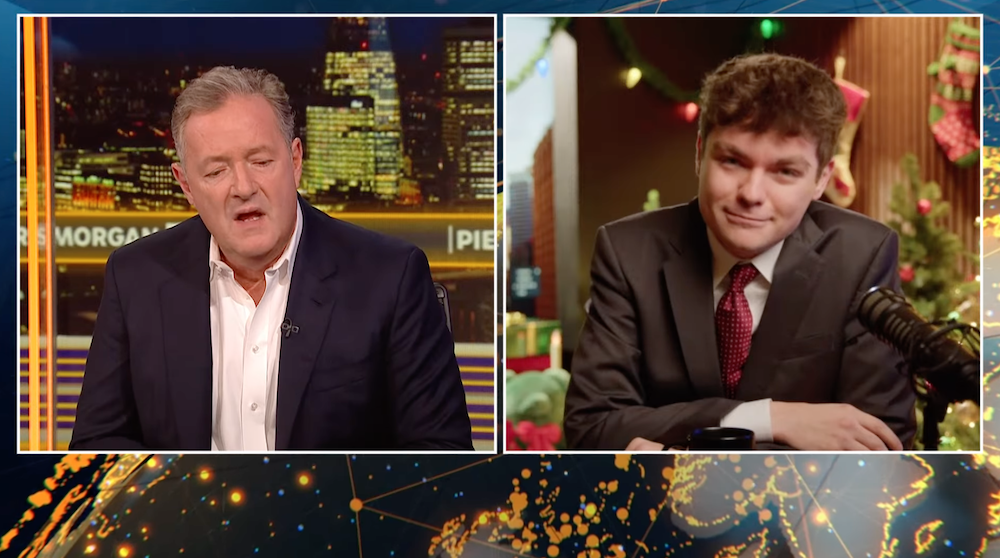The Kremlin has denied it targeted the Kyiv children’s hospital that was struck by a missile on Monday. It was aiming at legitimate military and civil infrastructure targets, it says, but the missile was intercepted by Ukraine’s Nasams defence system and the debris fell on the children’s ward. This is an easily debunked lie. The Spectator’s correspondent Svitlana Morenets was nearby and reports in these pages that there is plenty of video evidence to show exactly what happened: a perfectly intact, precision-guided Kh-101 missile going exactly where it was aimed.
It is a war crime to target hospitals, yet Russia does so and still a European head of government, Viktor Orban, will pay homage to Vladimir Putin in Moscow. Putin is given red-carpet treatment in the Gulf states, which are openly playing both sides. Blind eyes are being turned while Ukrainian children are buried by rubble.
The Kremlin’s decision to attack hospitals seems to be an attempt to escalate the war
Russia’s strategy is to demoralise Ukraine and show that it is waging war without any constraint. The destruction of civilian targets and power plants is intended to cause misery to civilians, not just to fight an enemy at the front. Ukraine’s power generation has fallen by two-thirds, prices have doubled, and millions now live with blackouts that last up to eight hours a day. This is in the summer. The coming winter could be much worse.
The whole population is being punished for its refusal to give in to the invader. The flagrant targeting of hospitals (three medical facilities were hit on Monday) is a reminder that international law, which supposedly governs conflicts, offers no protection to Ukraine now. Another reminder of that came this week when France and Ecuador asked for a session of the UN Security Council to discuss the war crime. The meeting was chaired by Russia, which holds the rotating presidency. Its ambassador replied that if the attack had been deliberate, every child in the hospital would have died.
In fact, Ukraine’s air-raid warnings meant that 600 child patients had been moved to shelter; only those in operating theatres (and the medics) were in the hospital when it struck. One of the doctors who stayed to help died. Hundreds of people were reportedly injured, including eight children.
At the UN meeting that was called to discuss the atrocity, China’s ambassador called for all sides to show ‘rationality and restraint’ and the ‘political will’ to ‘meet each other halfway’. Meeting an invader halfway, of course, means surrender and the rewarding of aggression. This is what Beijing wants. But the Kremlin’s decision to attack hospitals seems to be an attempt to escalate the war rather than move towards any settlement. There are calls in Ukraine to attack deeper into Russian territory and for retaliation on Russian civilian targets. Targeting a hospital makes a mockery of the idea that the Kremlin is interested in peace.
If China genuinely wished Russia to show restraint, it could stop fuelling Putin’s war machine and selling military components to the Kremlin. China is Russia’s single largest oil customer, buying much of the crude oil that can no longer be exported to the West. The Russian war economy is thriving. Before the full-scale invasion of Ukraine, Russia was making subsonic Kh-101 missiles at a rate of about one per week; now it’s closer to eight. At £10 million apiece, they are expensive – but, as the Okhmatdyt attack shows, also terrifyingly accurate.
Enough Kh-101 missiles have now been fired upon Ukraine (at least 700 this year so far) for a decent assessment to have been made of their components. Some bear the logo of STMicroelectronics, headquartered in Geneva. They are guided by various US chipmakers, including Analog Devices, Texas Instruments and Intel. Manufacturing for other parts of the missiles takes place in China, the Philippines, Malaysia and Taiwan. There is no suggestion anyone is breaking the arms embargoes, but plenty of evidence that the arms embargoes do not work. The wares can be copied; the money easily laundered through China and Thailand.
The Nato summit this week purported to offer $40 billion of funding for Ukraine. In effect this is a dressed-up presentation of promises that have already been made. The fact is that the United States spends more on defence (and on the defence of Ukraine) than all the other Nato members put together. Donald Trump is likely to be elected in the US while saying he plans to cut the funding altogether. If that happens, a new precedent will be set that aggressive states can do what they want. Basic rules of warfare to do with protecting civilians and children will be unenforceable. Those who breach these laws can get what they want if they just keep at it.
Rather than reheating old spending promises, Nato would do better to discuss the failure of sanctions and ask what more can be done to give missile defences to Ukraine, including the delivery of F-16 aircraft, which can intercept missiles. Joe Biden has promised one Patriot system and other defences ‘in the future’ but has not said when. This is a battle not just for Ukraine’s future, but for the survival of the postwar world order. As things stand, it looks dangerously close to collapse.








Comments